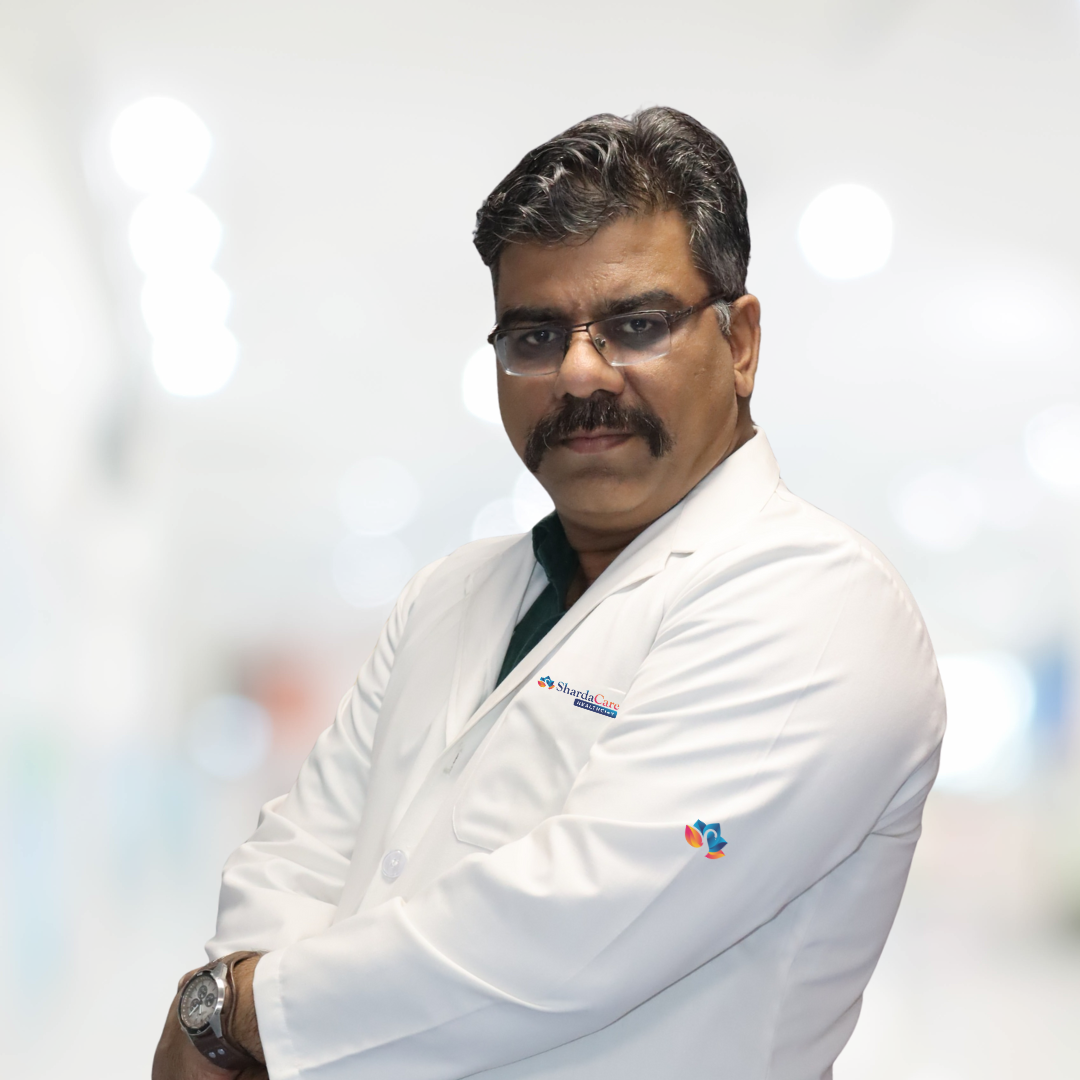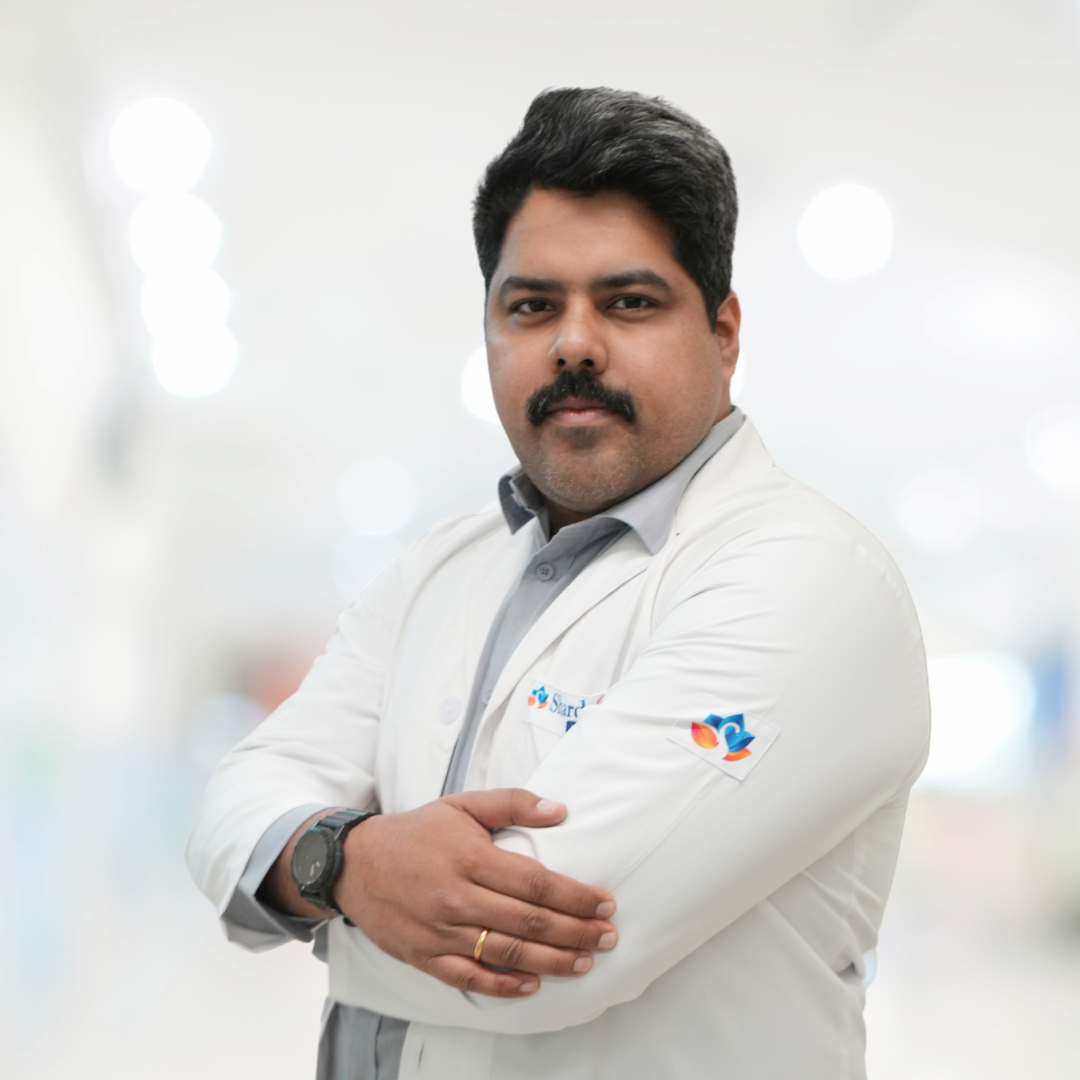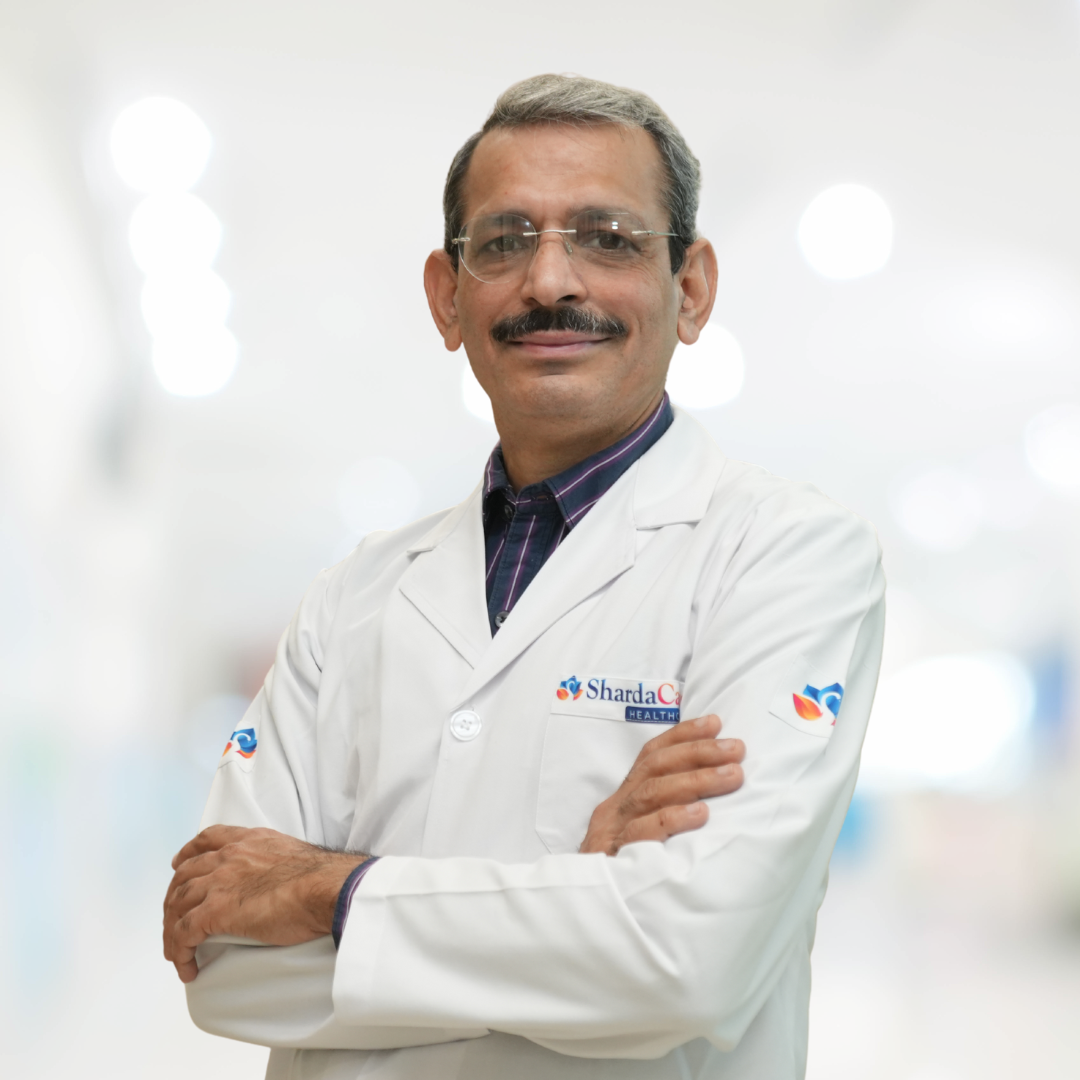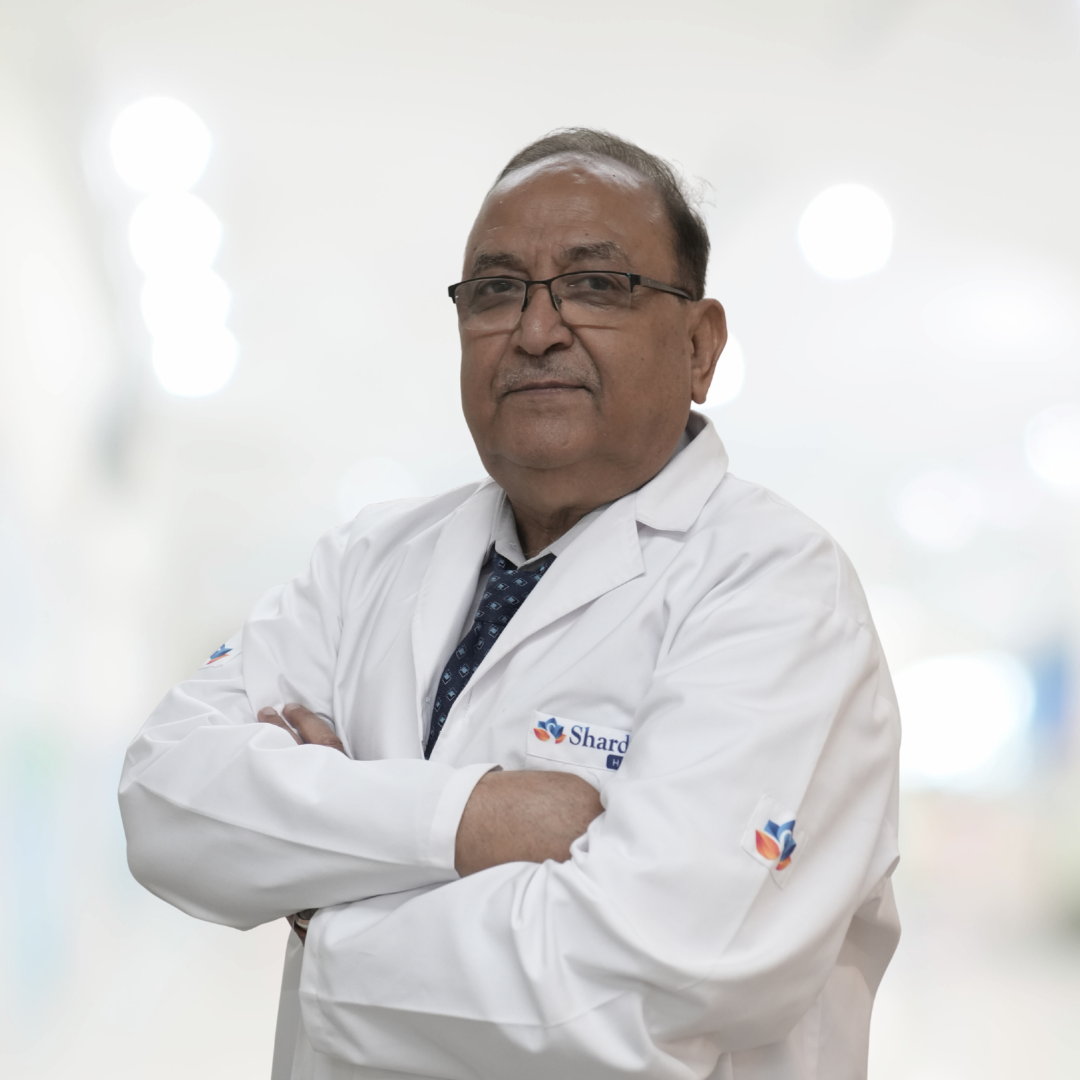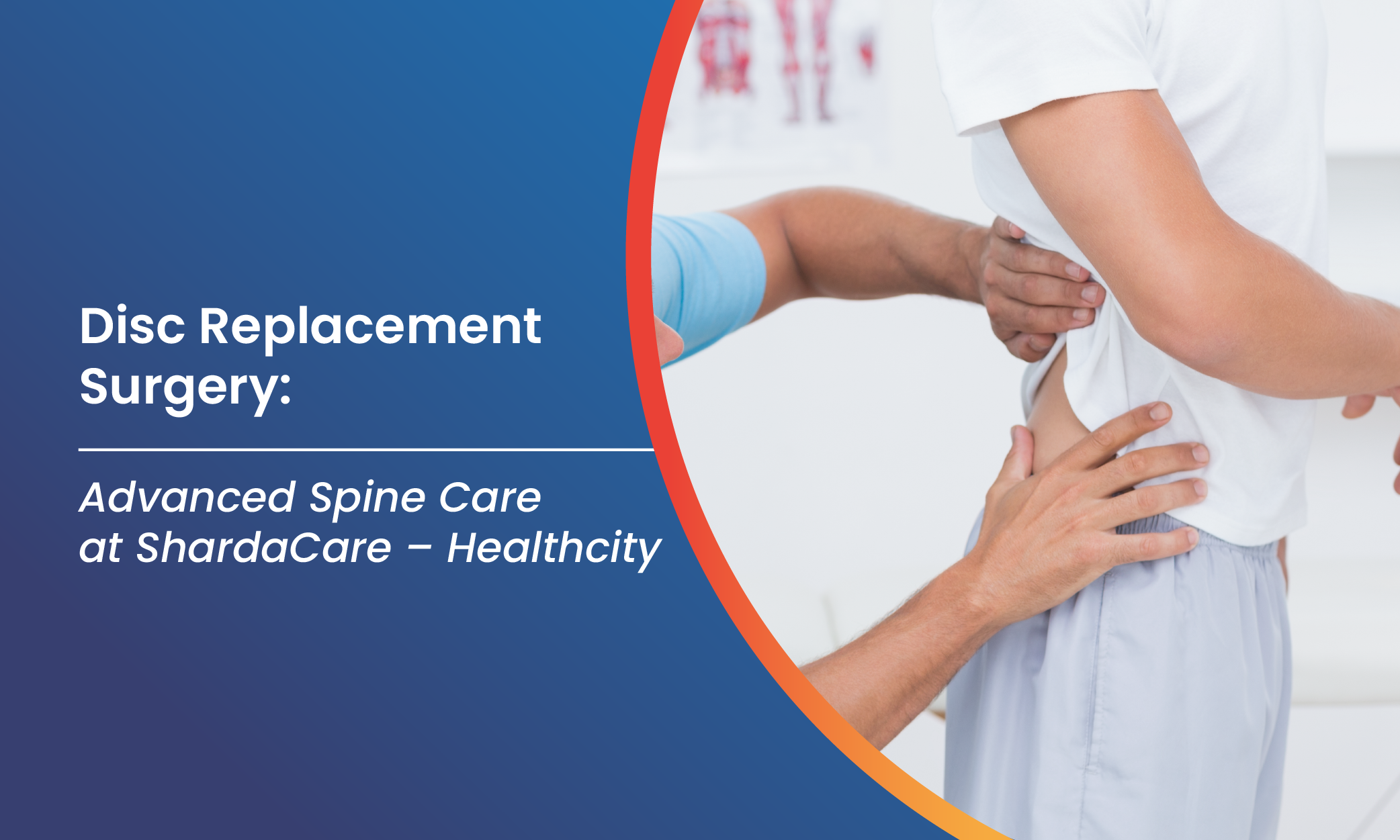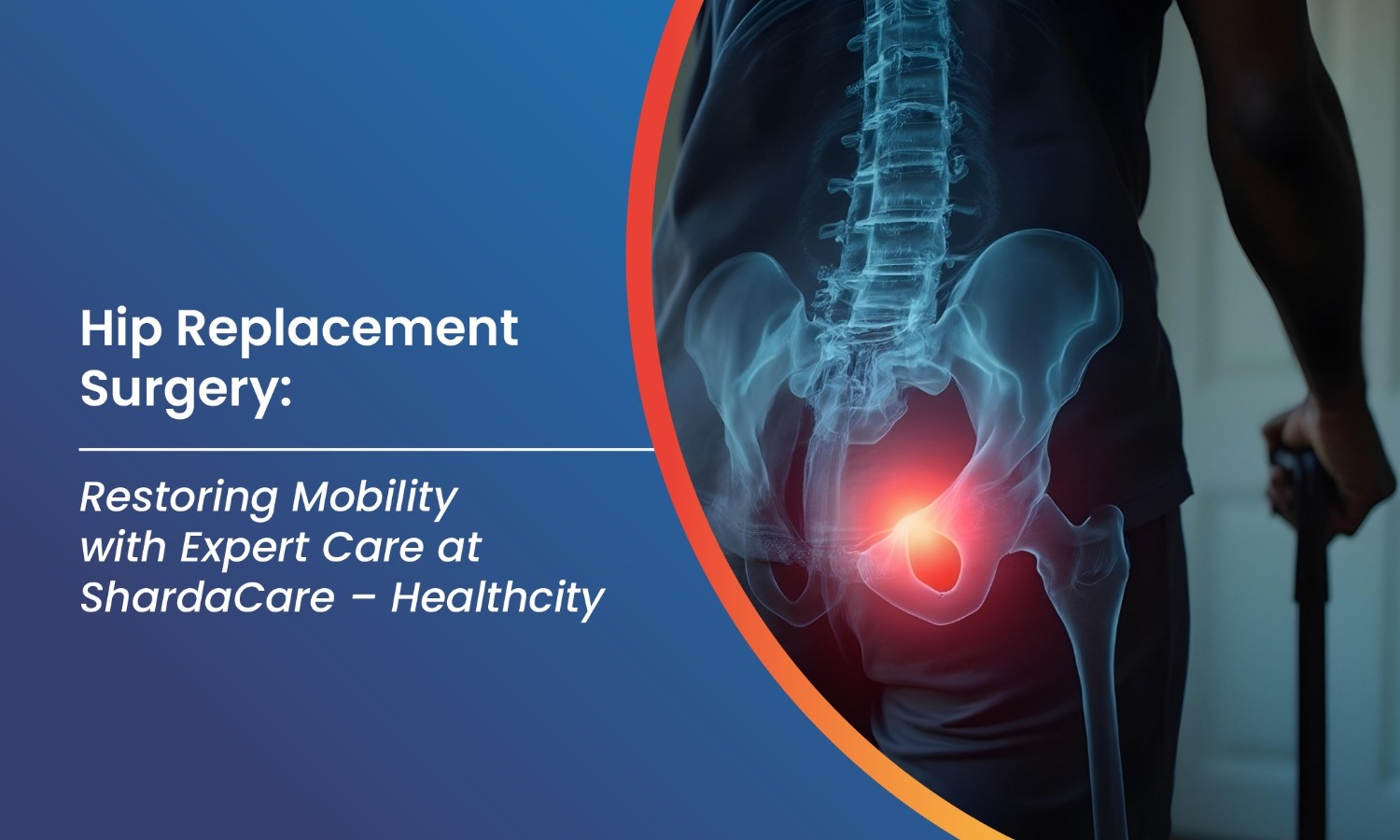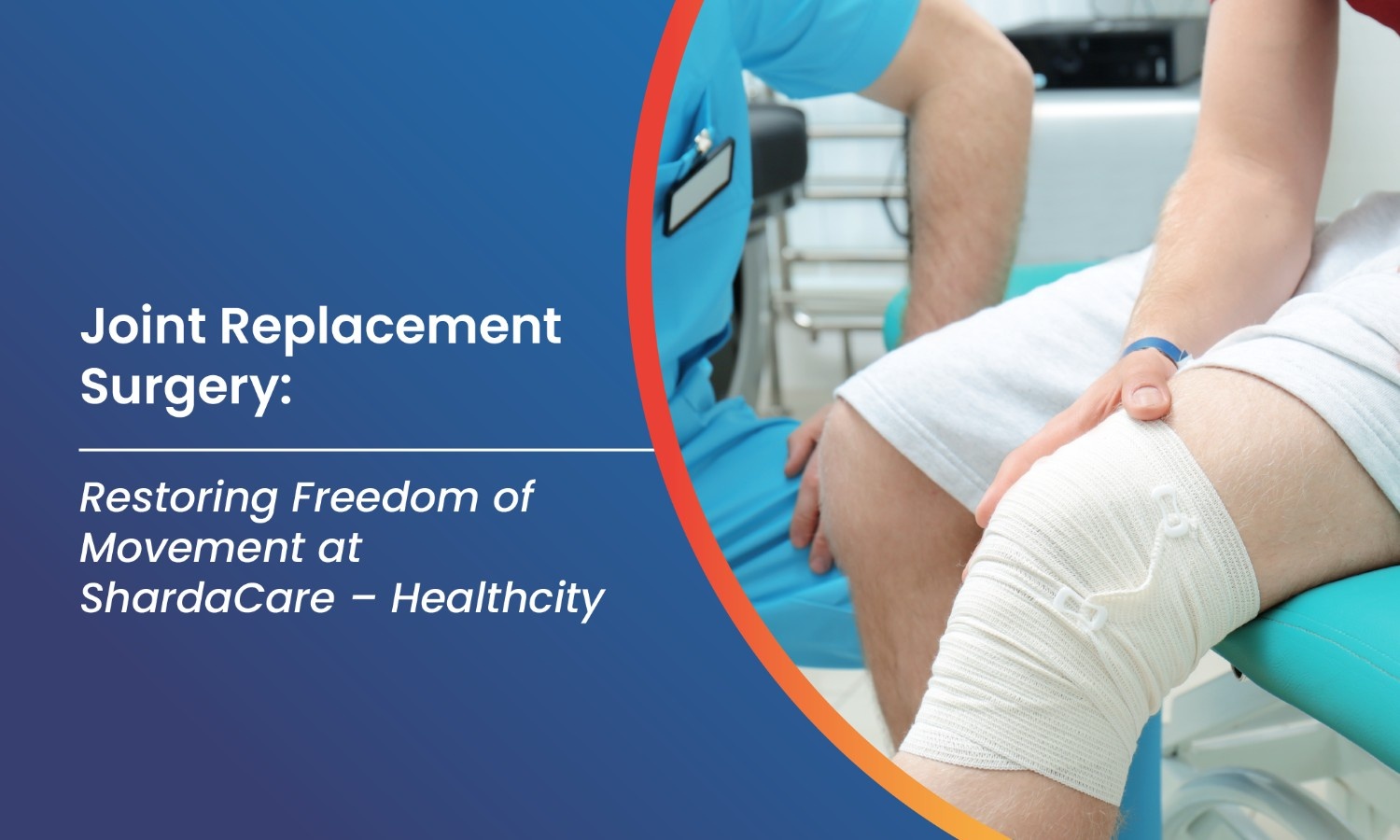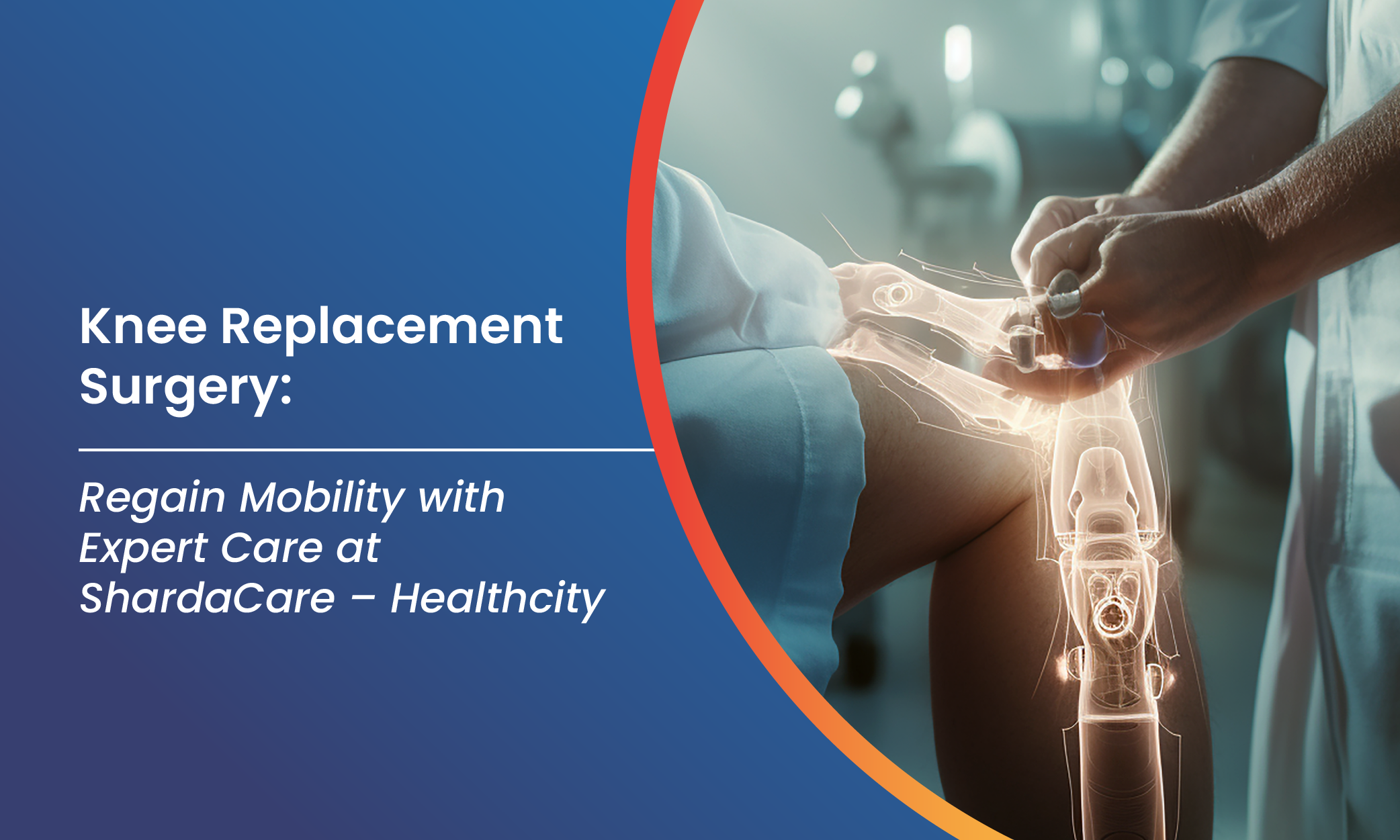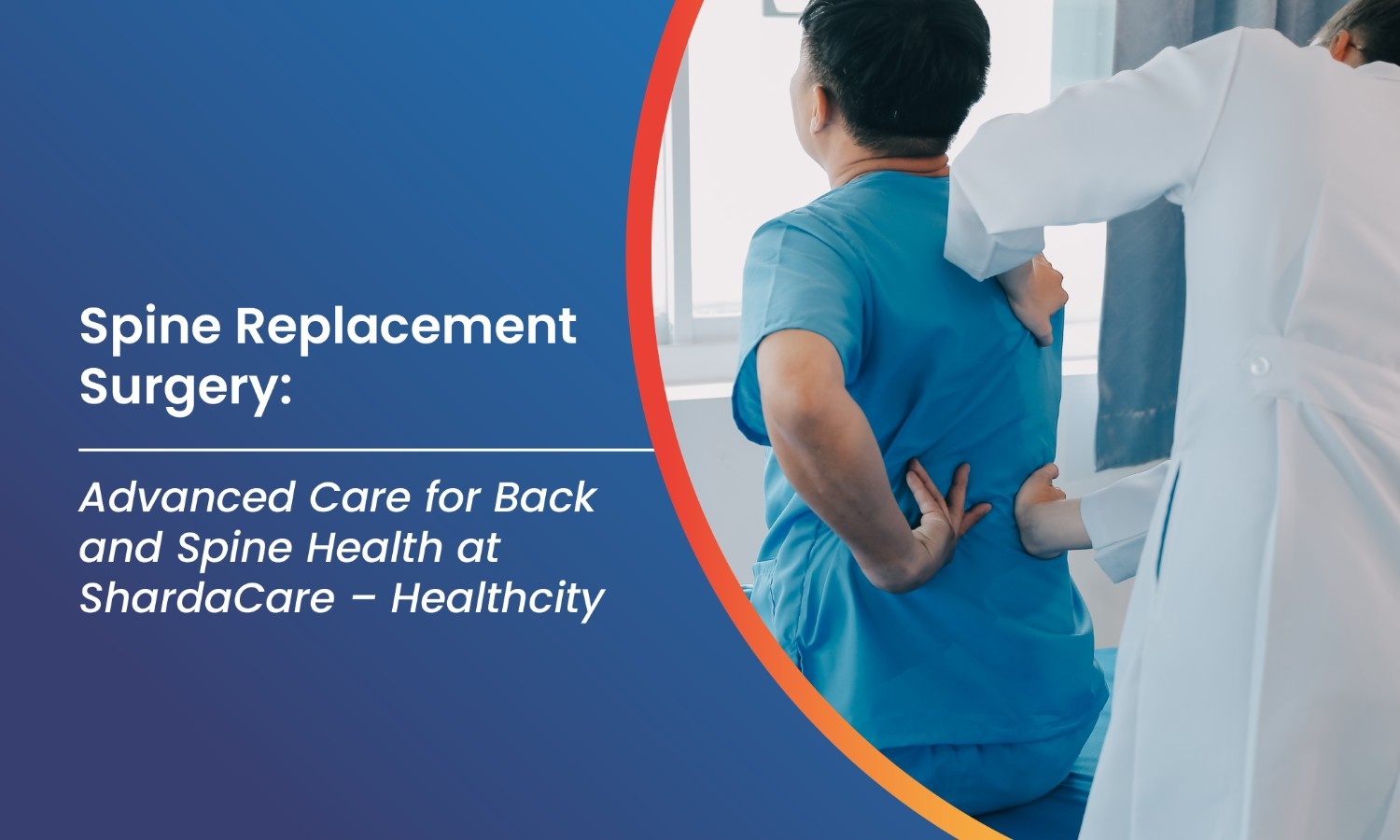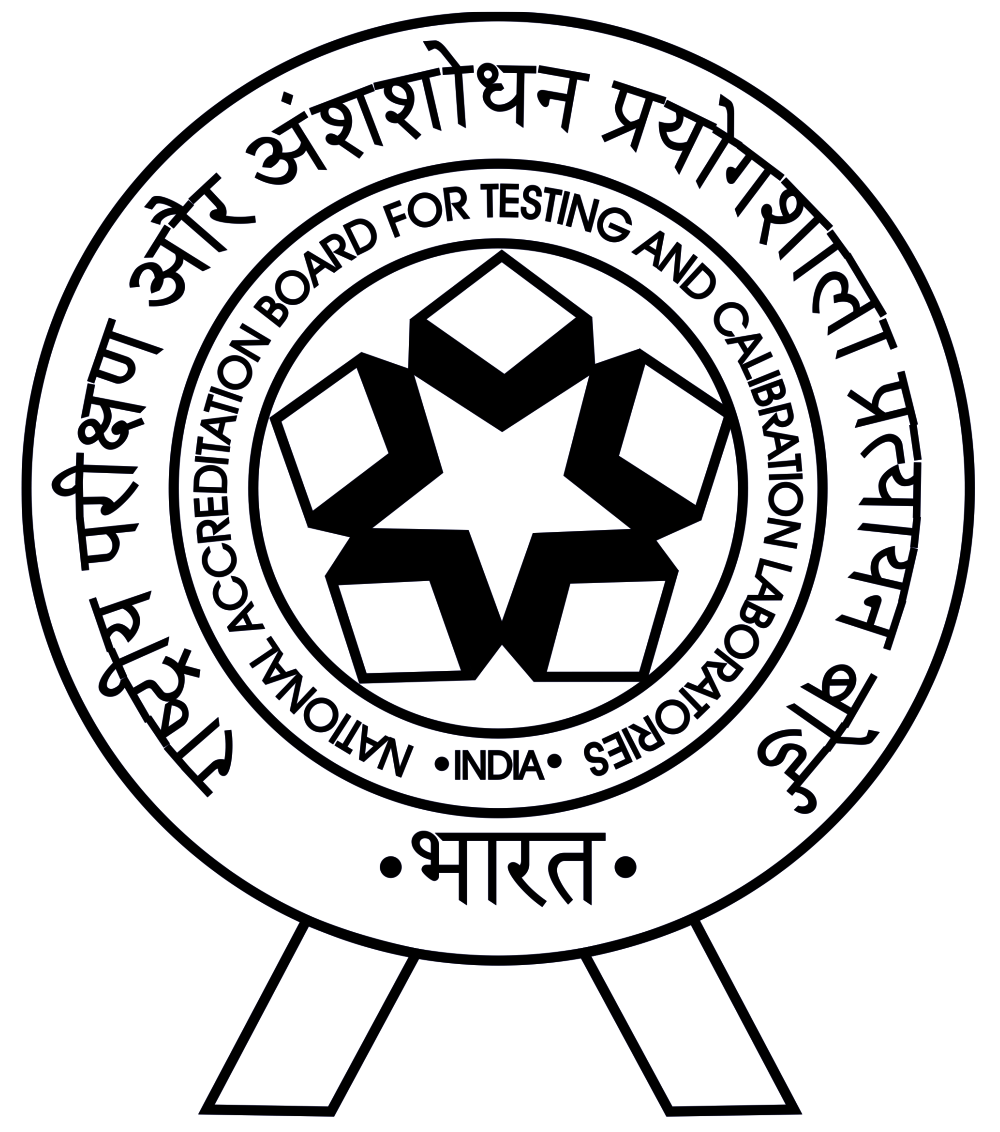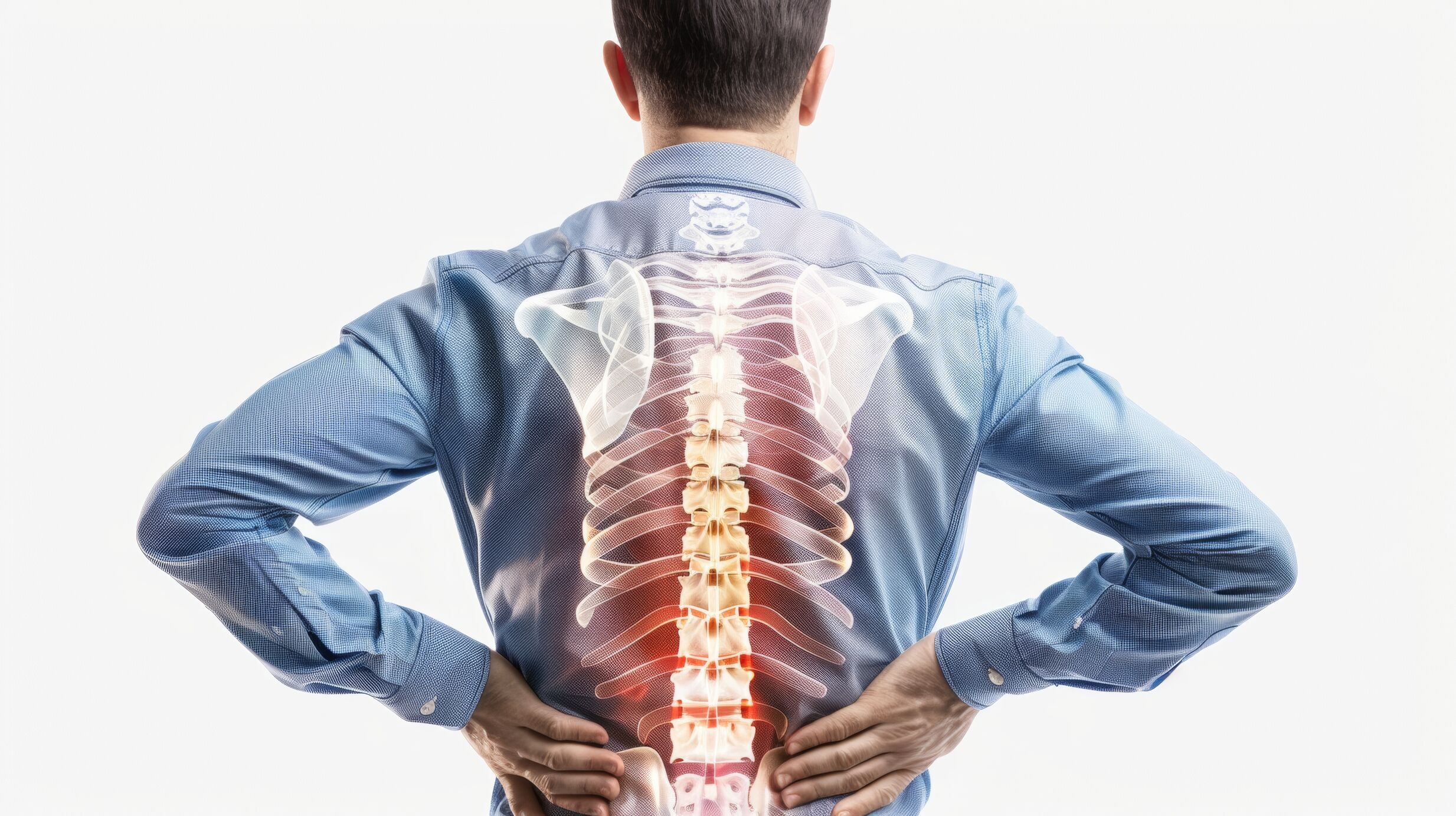
Spondylitis Care for Spine and Joint Health at ShardaCare – Healthcity
Spondylitis encompasses a group of chronic arthritis-related conditions that affect the Joints of the Spine and the Sacroiliac region. At ShardaCare - Healthcity , we provide comprehensive treatment for all types of Spondylitis, addressing inflammation in the Joints, Tendons, and Ligaments. Tendons, which connect Muscles to Bones, and Ligaments, which connect Bones to other Bones, are both affected by this condition. Inflammation in these areas can lead to the fusion of Bones and excessive Bone growth in the Spine. In severe cases, Spondylitis can result in abnormal curvature of the Spine.
We prioritize non-surgical interventions, striving to enhance patients' posture and mobility through tailored treatments and medication. Surgery is only considered when all other options have been exhausted. We meticulously evaluate each patient to ensure they are suitable candidates for surgical intervention, considering factors such as Medical History, Spinal Health, and overall well-being. At ShardaCare - Healthcity , we provide comprehensive care from consultation to discharge, ensuring the best possible outcomes for our patients.
Spondylitis affects multiple parts of the body, including:
- Back
- Joints
- Skin
- Eyes
- Digestive System
- Heart
Common symptoms of spondylitis include:
- Fatigue
- Muscle Pain
- Eye Inflammation
- Joint Pain
- Back Pain
- Swelling in the Arms and Legs
The different forms of spondylitis are:
Ankylosing Spondylitis: Also known as Axial Spondyloarthritis, this condition triggers inflammation in the Spine, potentially leading to the fusion of vertebrae. This fusion limits Spinal Flexibility and may result in a stooped posture. Breathing difficulties can arise if the Ribs are affected. Symptoms of Ankylosing Spondylitis include:
- Lower Back Pain
- Hip Joint Pain
- Stiffness
- Swelling
Enteropathic Arthritis (EnA): Characterized by Intestinal Pain and Inflammation, EnA can manifest as Back and Joint Discomfort. Symptoms may include:
- Abdominal Pain and Cramping.
- Chronic Diarrhoea.
- Weight Loss.
- Blood in the Stool.
- Joint Pain, particularly in the Lower Back, Hips, and Knees.
Psoriatic Arthritis (PsA): Linked with psoriasis, PsA induces Back Pain and Stiffness, primarily affecting smaller Joints like those in the Fingers and Toes. Symptoms of PsA include:
- Joint Pain and Stiffness, often in the Fingers, Toes, Lower Back, and Sacroiliac Joints.
- Swelling and Tenderness in the affected Joints.
- Psoriasis flare-ups, characterized by Red, Scaly Patches of Skin.
- Dactylitis, causing Swelling of entire Fingers or Toes (Sausage Digits).
Reactive Arthritis/Reiter’s Syndrome (ReA): Often following bacterial infections, ReA may stem from Sexually Transmitted Infections or Gastrointestinal issues. It typically causes Pain and Inflammation in Peripheral Joints, the Spine, and Sacroiliac Joints. Symptoms may include:
- Joint Pain and Swelling, commonly affecting the knees, Ankles, and Feet.
- Skin Rash, often on the Palms, Soles, or Trunk.
- Eye Inflammation (Conjunctivitis).
- Genital or Urinary symptoms, such as Painful Urination or Discharge.
- Mouth Ulcers.
Juvenile Spondylitis (JSpA): Juvenile Spondyloarthritis (JSpA) is a type of chronic inflammatory Arthritis that manifests in individuals aged 16 or younger. This condition initiates inflammation at the points where Ligaments and Tendons attach to Bone and Predominantly impacts the Joints in the Legs. Symptoms may include:
- Joint Pain and Stiffness, especially in the Hips and Knees.
- Morning Stiffness and Reduced Mobility.
- Fatigue and General Malaise.
- Inflammation of the Eyes (Uveitis).
- Delayed Growth or Puberty.
Looking for an Expert
ShardaCare - Healthcity is home to some of the eminent Doctors in the world.
Book an Appointment

